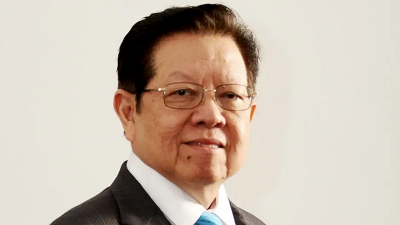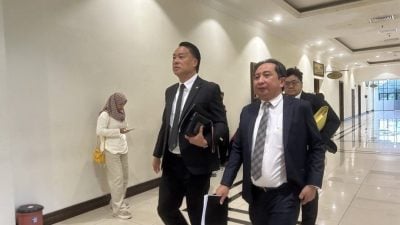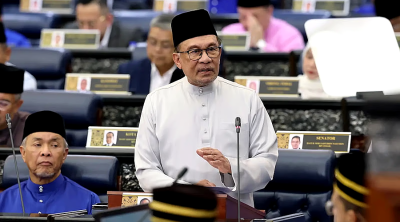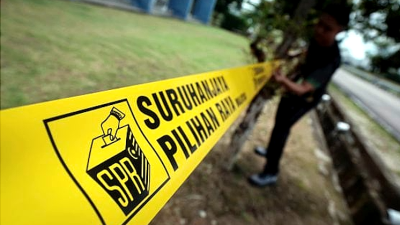In response to the immense controversy arising from the DNAA of Ahmad Zahid, it is time for Anwar Ibrahim to display his leadership as well as a strong political will to institute the much needed reforms.
The granting of discharge not amounting to an acquittal of Deputy Prime Minister cum Umno President Datuk Seri Ahmad Zahid Hamidi from all 47 charges in relation to Yayasan Akalbudi funds on Monday caused widespread furor and controversy across the Malaysian society.
The dramatic reversal in the DPM’s charges to a certain extent has heavily bruised the image of the Unity Government, especially Pakatan Harapan.
Several cabinet ministers in the Unity Government have rushed to emphasize that they respect the High Court’s decision, but legally speaking, the court is basically in the passive.
Article 145(3) of the Federal Constitution states that the Attorney-General has a dual responsibility to offer his views on legal affairs to the Yang di-Pertuan Agong, cabinet, or any minister, and has the power — exercisable at his discretion — to institute, conduct or discontinue any proceedings for an offence.
Weirdly, even as the court had ruled in last January that the prosecution had established a prima facie case against Ahmad Zahid on all the charges, but unfortunately before the hearings were completed, Ahmad Zahid was granted the DNAA.
Attorney-General Idrus Harun was then on leave preparing to unload his duties before his successor Ahmad Terrirudin Mohd Salleh takes over the baton today.
It was generally believed that the lead prosecutor would have requested that the new AG to review the cases after he has started work.
The AGC owes the Malaysian public an acceptable explanation as to why the charges were dropped four years after they had gone to trial, wasting judicial resources and taxpayers’ money.
The discharge of Ahmad Zahid’s cases has given an apparent hint of government intervention, which the Unity Government has squarely denied. Notwithstanding, the perceived presence of government intervention has been firmly implanted in the cognizance of the public.
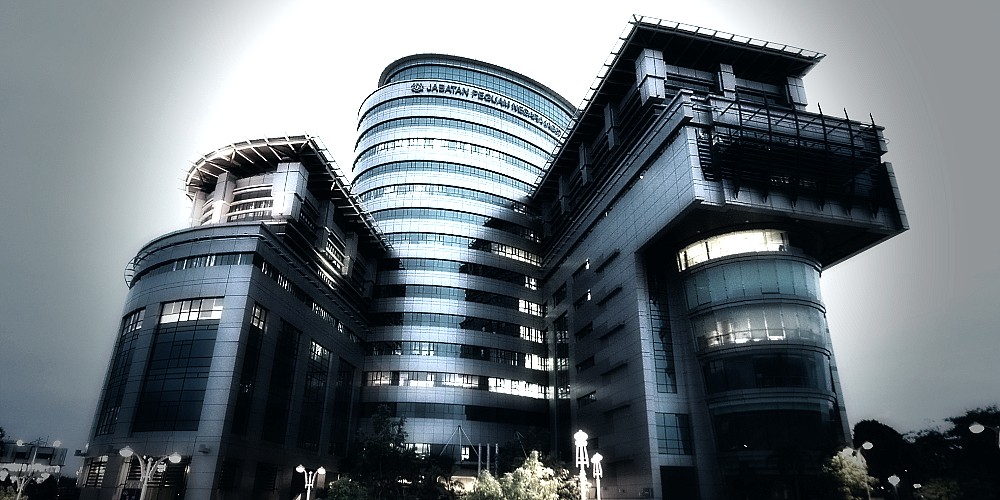
Prime Minister Datuk Seri Anwar Ibrahim has reiterated his determination in battling corruption, and the opposition have ridiculed the government for reneging on its promises to wipe out corruption.
Meanwhile, pro-Pakatan civic organisations are disappointed that Anwar has abandoned the “Reformasi” spirit and backed off from instituting meaningful reforms.
Sure enough Umno, a party in the Unity Government, is reassured that the party president has finally been freed of his corruption charges, while DAP says it respects the court’s decision.
Nevertheless, the move has come under tremendous backlash and concern from the public as they demand a reasonable explanation from the AGC.
As a government adviser and representative, the AG naturally has to answer to the prime minister. By right Anwar should have instructed the AG to offer an open explanation as to why Ahmad Zahid was granted DNAA.
The dual role of the AG could trigger conflicts in judicial practice, especially when the government’s interests are at odds with the public’s.
Hence, it is now time to implement the essential institutional reforms.
Reforms can only be carried out through legislation in parliament in order to make the AGC, MACC and other agencies completely independent from political intervention and influence for good governance and enhanced transparency.
To segregate the duties of the AGC will entail the amendment of Article 145(3) of the Federal Constitution, Penal Code Section 376(1), as well as the definition of “Public Prosecutor” in the Interpretation Acts 1948 and 1967 in a bid to redefine the powers of the AG and Public Prosecutors.
After the reform, the AG shall assume the role of the government’s chief adviser in commercial, civil and international trade affairs, while the Prosecutors’ Office shall be an independent agency answerable only to parliament.
We need to highlight here that judicial reform has been one of the promises contained in Pakatan Harapan’s election manifesto.
To be fair, PH has not actually abandoned this pledge, but when the coalition was helming the federal government for the first time under the premiership of Tun Mahathir, there wasn’t a strong willpower to implement this reform, as the then PH administration did not set an explicit deadline on the separation of the duties of AG and Public Prosecutors.
Mahathir even claimed that a two-thirds majority was necessary to initiate such reform.
Anyway, the PH administration later set up a task force for this but before anything could be done, the government collapsed, and the subsequent Muhyiddin and Ismail administrations failed to initiate the reform.
After the Unity Government came to power after last year’s general election, PM Anwar admitted in March that there was this need for reform, but that its initiation and implementation was bogged down by financial constraints.
Law and Institutional Reform Minister Azalina Othman Said revealed last year that the AGC would propose a master plan to reform the AGC towards the separation of powers of the AG and Public Prosecutors.
Whatever the circumstances, the agenda to separate the powers must become one of the Unity Government’s most urgent reform agendas in achieving the vision of a “Madani Government.”
In response to the immense controversy arising from the DNAA of Ahmad Zahid, it is time for Anwar Ibrahim to display his leadership as well as a strong political will to institute the much needed reforms.
ADVERTISEMENT
ADVERTISEMENT







